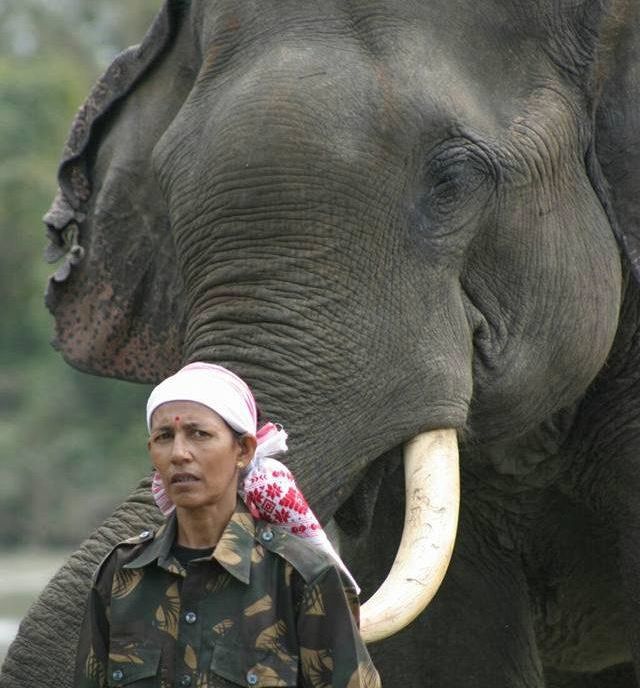A day before India marks its 75th Republic Day, the country announced the winners of the Padma awards. In total, India awarded 132 people — five Padma Vibhushan, 17 Padma Bhushan and 110 Padma Shri Awards.
Among the long list of awardees, was the name of Parbati Baruah, popularly known as ‘Hasti Kanya’, who gained fame as India’s first woman elephant mahout. She has been conferred upon the Padma Shri award for her efforts in animal conservation and overcoming stereotypes to create a space for herself in a traditionally male-dominated field.
Let’s take a closer look at the life and career of Parbati Baruah and why she rightly deserves a Padma Shri.
The life of Parbati Baruah
Now 67-years-old, Baruah, who is also known as Hasti Kanya, hails from Gauripur in Assam. For her elephants is nothing new. She is born in an Assamese zamindar family with a centuries-old link with elephants, and began playing with them while a child. In fact, her father, Prakritesh Barua, is an internationally acclaimed elephant expert.
Initially, her family used to capture and sell elephants until the time the Government banned this practice. It is said that some of the clients of her family included the royal families of Bhutan, Cooch Behar and Jaipur.
At the age of 14, Baruah managed to capture her first elephant in Kachugaon forests in Kokrajhar district. When asked how she accomplished this task, she had said that catching an elephant is not a matter of brute strength. “It’s all in the mind and some amount of luck
It was this incident that sparked her desire to become a mahout, which she accomplished in 1972, defying stereotypes. Since then, she has carried out several tasks towards elephant conservation.
Through her years, she has gained prominence and even became the topic of a BBC documentary, called Queen of the Elephants.
When asked why she’s so fascinated with the tuskers, she had once said, “Love cannot be explained. Perhaps it’s because elephants are very stable, loyal, affectionate and disciplined.”
Baruah, speaking of her love for the pachyderms, was also quoted as telling IndiaToday, “They love me because I understand their sentiments. One call and they all come running to me.”
And what does a day in Baruah’s life look like? She spends time taking the elephants out for a bath, riding them in jungles and training them. She has also said that she prepares hadiya from rice as her ‘lovers’ — a term for her elephants — as they are very fond of liquor.
And her love for elephants is truly unparalleled. In the 1970s, she married a bank employee, Pulin Das, but didn’t stay with him very long, as he was, in her words, “unable to get interested in my friends”.
On Baruah’s elephant trail
In her years as an elephant mahout, Baruah has had many experiences and has committed herself to mitigating human-elephant conflict. She has also assisted three state governments to tackle and capture wild tuskers.
One such instance was in West Bengal’s Midnapore district. A herd of over 50 elephants had lost their way and were on a destructive path in the West Bengal district. When the state authorities were unable to capture them, they called in Parbati Baruah.
With her four elephants and team comprising of other mahouts and fodder collectors, Baruah was able to show the tuskers back to their way and after a fortnight of efforts, the elephants were back on their normal migratory trail.
Also read: A story from conflict to coexistence between humans, elephants in Anamalai
In March 2003, came, perhaps, the toughest moment of her career. She had to kill an elephant, who had gone on a rampage in Chattisgarh.
She has once been quoted as saying, “My work is to rescue man from the elephants, and to keep the elephants safe from man. All the elephant wants is peace and safety.”
Today, Baruah continues to live in Jalpaiguri and her life is bereft of modern conveniences. She lives in a simple tent with a threadbare mattress. And all around her are her ropes, chains and khukris, the tools of her trade.
People who know Baruah say that even now whenever wild elephants stray into a tea-garden or turn trumpeting mad, Baruah is summoned to guide the beasts back to the jungle before the killing begins.
With inputs from agencies
Link to article –
Who is Parbati Baruah, India’s first woman elephant mahout and Padma Shri winner?





